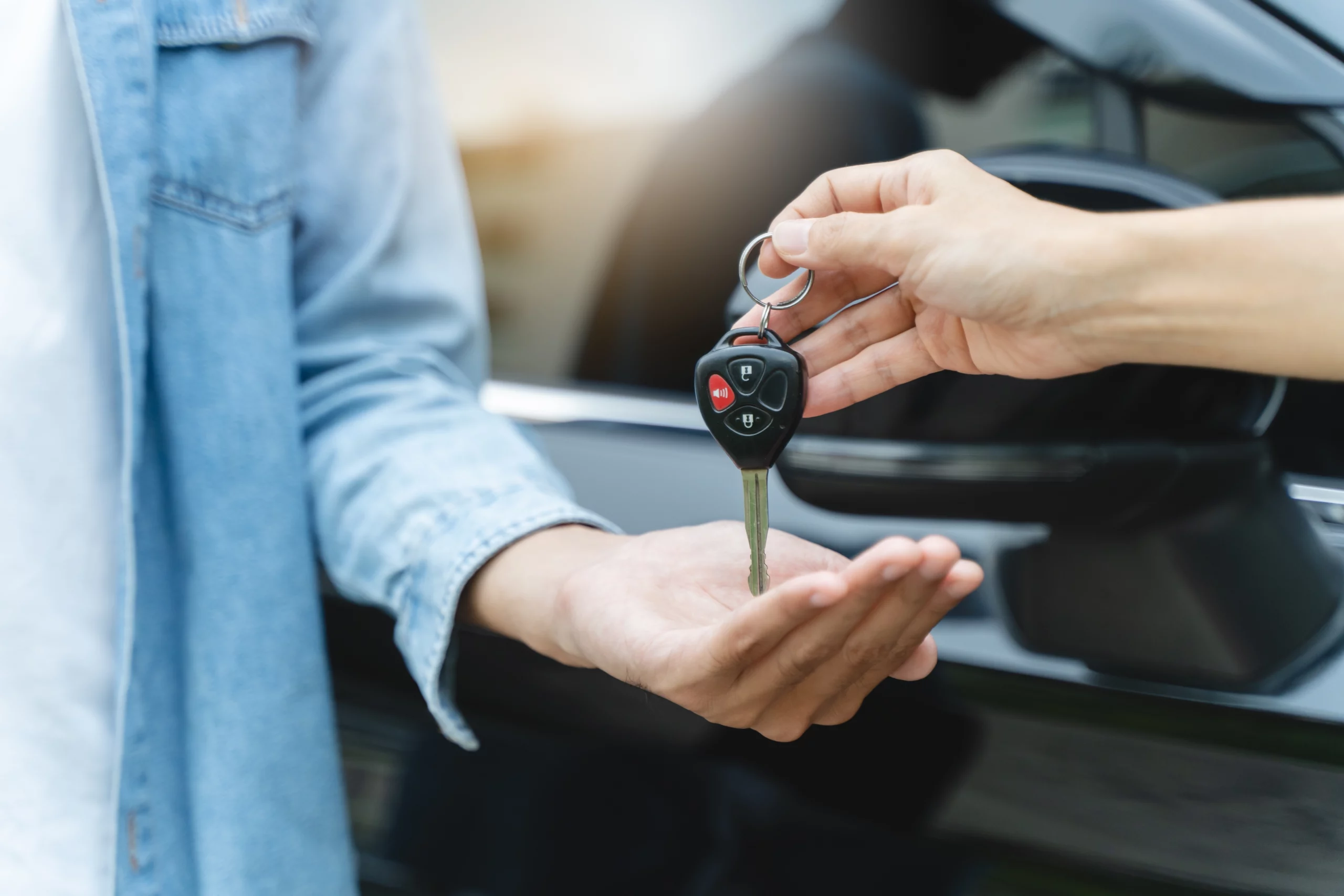
What is a Secured Personal Loan?
Life often throws financial challenges our way. Things like home renovations, medical emergencies, and big-ticket..
Read more
Australia’s most accessible financial broker
Looking to buy a new or used car but don’t have the funds to pay upfront? You’re not alone. Car finance is a common option that helps many Australians get on the road sooner. But how does financing a car work, exactly? Whether it’s your first car or your fifth, understanding the ins and outs of car finance can help you make informed decisions and avoid costly mistakes. We’ll break down what car finance is, how it works through dealerships and lenders, what you need to qualify, and the pros and cons of taking out a car loan in Australia.
Car finance refers to borrowing money to buy a car, usually from a lender such as a bank, credit union, or non-bank lender. Instead of paying the full price of the car upfront, you’ll make regular repayments—typically monthly or fortnightly—over an agreed loan term, which can range from 1 to 7 years.
There are several types of car finance options available in Australia:
Loan type |
Details |
Secured car loan |
The car you’re purchasing acts as security for the loan, often resulting in lower interest rates. If repayments aren’t made, the lender can repossess the car. |
Unsecured personal loan |
The loan isn’t tied to the car as collateral, offering more flexibility but usually coming with higher interest rates. |
Dealer Finance |
Offered directly by the dealership, usually in partnership with a lender. May include promotional offers like low-interest periods, but options can be limited. |
Novated Lease |
A three-way agreement between you, your employer, and a finance company, where repayments are made from your pre-tax salary. Can offer potential tax benefits but is tied to your employment. |
Each option has its own benefits and drawbacks, so it’s worth comparing offers and choosing the one that suits your financial circumstances.
Some buyers choose to arrange car finance through the dealership where they purchase the vehicle. In these cases, the dealership typically works with a partnered lender to provide the loan, and may include extras such as insurance, extended warranties, or servicing in the finance package.
While dealer finance can be convenient, promotional offers—such as low or zero interest rates—may have strict eligibility requirements or be limited to certain models. In some cases, the car’s price may also be adjusted to account for the offer.
It’s worth comparing dealer finance with other options, such as those available through banks, credit unions, or finance brokers like Oceania Finance. As a finance broker, we can compare a range of lenders and products to help you find a solution that suits your needs, making the process simpler and potentially saving you time and money. Talk to our experts today!
Learn more: How to Finance a Car.
Most lenders in Australia allow you to repay your car loan early, either by making extra repayments or paying off the full balance before the loan term ends. However, it’s important to check whether any fees or penalties apply.
Some fixed-rate loans come with early repayment fees, especially if you pay off the entire loan well ahead of schedule. Variable-rate loans tend to be more flexible with extra repayments.
If you’re considering early repayment, ask your lender to outline any costs involved and calculate whether it’s worth it in the long run.
To apply for car finance in Australia, you’ll need to meet some basic eligibility requirements and provide documentation to support your application. While exact criteria vary between lenders, here’s what you generally need:
1. Proof of identity
This usually includes a driver’s licence, passport, or Medicare card.
2. Proof of income
Lenders want to ensure you can afford the loan. Be prepared to provide recent payslips, bank statements, or tax returns if you’re self-employed.
3. Employment details
Stable employment can improve your chances of approval. Depending on the lender, you may need to provide your employer’s contact details and confirm how long you’ve been in your role.
4. Credit history
Lenders will check your credit report to assess how reliably you’ve managed debt in the past.
5. Personal information
This includes your residential address, rental or mortgage commitments, and any other ongoing financial obligations.
Some lenders offer pre-approval, which allows you to shop for a car with confidence knowing your budget is already set.
There’s no single minimum credit score required for car finance, as criteria vary between lenders. In Australia, credit scores generally range from 0 to 1,200, depending on the credit reporting agency:
| Credit reporting agency | Excellent | Very Good | Good | Average | Below average |
|---|---|---|---|---|---|
| Experian | 800 – 1000 | 700 – 799 | 625 – 699 | 550 – 624 | 0 – 549 |
| Illion | 800 – 1000 | 700 – 799 | 500 – 699 | 300 – 499 | 1 – 299 |
| Equifax | 853 – 1200 | 735 – 852 | 661 – 734 | 460 – 660 | 0 – 459 |
Borrowers with higher scores may have access to a wider range of loan options, while those with lower scores may have fewer options or different loan conditions. If you’re concerned about your credit score or unsure where you stand, a loan broker, like our team at Oceania Finance, can help compare lenders and loan products to find a solution that suits your needs.

Approval times can vary depending on the lender and how quickly you submit the required documents. Generally, here’s what you can expect:
Pre-approval can help speed things up and give you more confidence when negotiating with sellers.
Car finance can make it possible to purchase a vehicle without paying the full amount upfront. Like any form of credit, it has both advantages and disadvantages to consider:
Pros |
Cons |
Immediate access to a vehicle. |
Interest and fees add to the total cost. |
Spread out cost over time, easing upfront financial pressure. |
Depreciation; the car may lose value faster than you repay the loan. |
Build credit history through on-time repayments. |
Risk of repossession if you can’t keep up with repayments. |
Option to drive a better vehicle than you could afford outright. |
Locked into repayments for years, potentially limiting future financial flexibility. |
Whether car finance is suitable will depend on your financial circumstances, goals, and ability to meet all associated costs, including insurance, registration, and maintenance.
At Oceania Finance, our expert brokers partner with a wide network of lenders to secure competitive terms and personalised solutions tailored to your situation. Whether your credit score is great, average, or not so strong, we’re here to help simplify the process and get you into a car you can afford. Reach out today and let’s get started.
Yes, it is possible to sell a car that is still under finance. Typically, you’ll need to check how much is owing, inform the buyer, and use the sale proceeds to pay off the lender. Once the loan is cleared, the lender will release their interest in the vehicle, allowing the transfer of ownership to proceed. It’s a good idea to contact your finance provider early to get the payoff amount and understand any fees that may apply.
Interest rates can vary depending on factors like your credit score, loan amount, loan term, and whether the loan is secured or unsecured. When comparing car finance options, it’s important to look at both the interest rate and the comparison rate to get a clearer picture of the total cost.
While a good credit score can give you access to better rates and more lender options, there are specialist lenders in Australia who work with borrowers with fair or poor credit histories. Just keep in mind the trade-off is often a higher interest rate and stricter loan conditions.

Life often throws financial challenges our way. Things like home renovations, medical emergencies, and big-ticket..
Read more
Getting a small business loan can be a key step for entrepreneurs looking to start..
Read more
Life can be expensive sometimes. From unexpected medical costs, to weddings, to holidays, saving money..
Read more